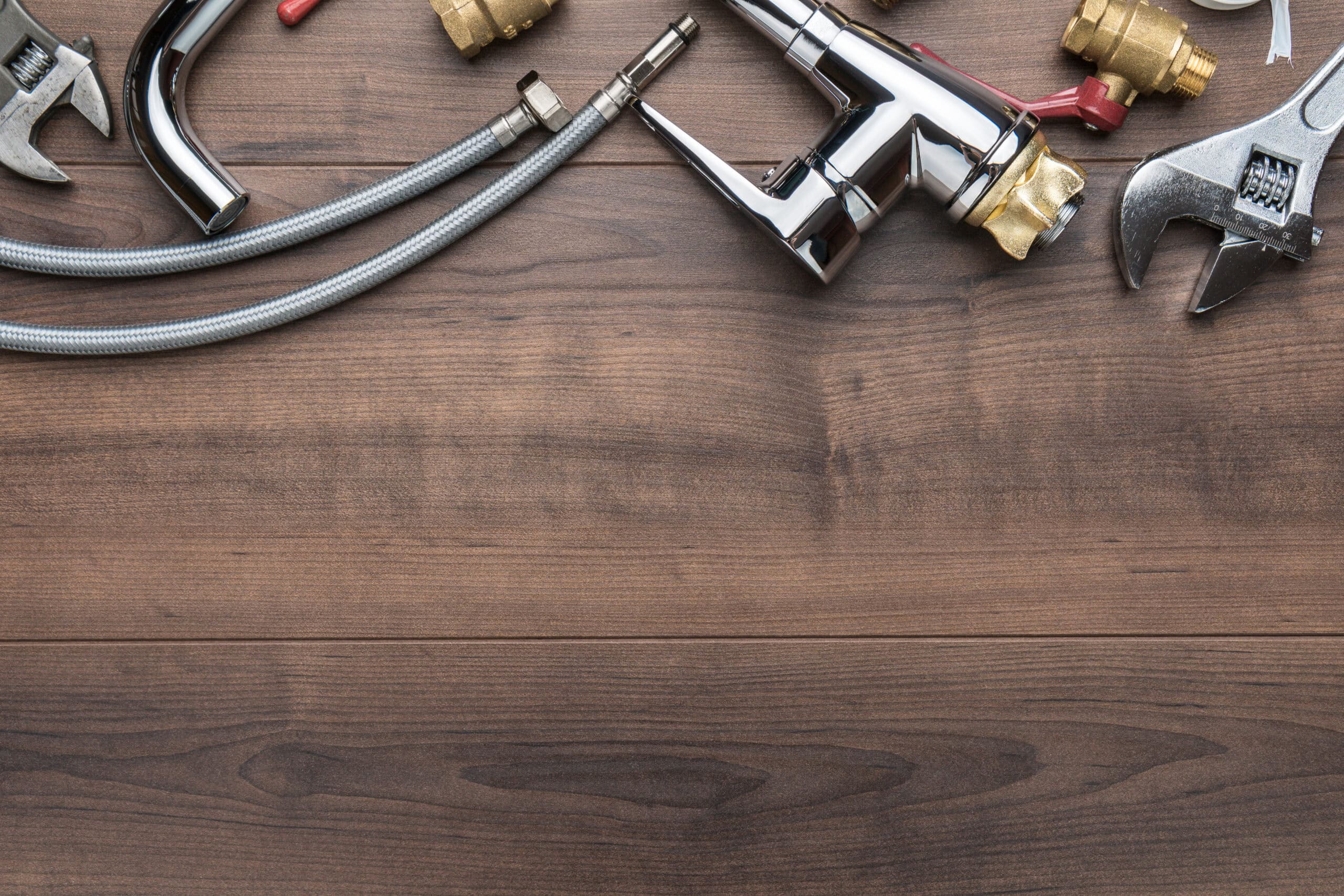5/2/2024
Expert Plumbers Bossier City: Tackling Toilet Problems

Platinum Plumbing in Bossier City is a trusted and reputable plumbing company that has been serving residents and business owners since 1997. With a focus on customer satisfaction and quality work, they have established themselves as the go-to plumbers in the area. They understand the importance of a functioning plumbing system in your daily life and strive to provide exceptional plumbing services professionally.
One of the key reasons why Platinum Plumbing stands out from other plumbers Bossier City is their commitment to providing expert estimates. This allows customers to have a clear understanding of the scope and cost of the plumbing services they require. By offering expert estimates, Platinum Plumbing ensures transparency and helps customers make informed decisions about their plumbing needs. Providing top-notch customer service is also a top priority for Platinum Plumbing, as they are committed to communicating transparently with their customers. Hence, they are always aware of what is being done and why.
Platinum Plumbing takes great pride in their ability to solve common toilet problems. From continuous running water in the toilet tank to weak flushes and clogged toilets, their team of expert plumbers has the knowledge and experience to fix these issues in a timely and efficient manner. They use the latest tools and techniques to ensure that the problem is resolved effectively, minimizing any inconvenience for their customers. Read Affordable Plumbers Bossier City – Quality Repairs Guaranteed to learn more.
5 Frequent Toilet Issues Platinum Plumbing In Bossier City Can Solve
Platinum Plumbing in Bossier City specializes in solving a wide range of toilet issues. Whether it’s continuous running water in the toilet tank, weak flushes, toilet leaks, clogged toilets, or a toilet that won’t flush at all, their team of expert plumbers is well-equipped to handle these problems. With their expertise in plumbing, drain cleaning, and sewer line repair, they can diagnose and fix these issues in no time. Whether you’re experiencing a minor inconvenience or a major plumbing problem, Platinum Plumbing can provide the necessary solutions to ensure that your toilet is functioning properly.
1. Continuous Running Water In The Toilet Tank
One of the most common toilet problems is continuous running water in the toilet tank. Not only is this issue annoying, but it can also lead to a high water bill if left unresolved. Platinum Plumbing in Bossier City can help identify the cause of the problem and provide the necessary repairs. This may involve replacing the flapper valve, adjusting the fill valve, or fixing any leaks in the toilet tank. Their expert plumbers have the knowledge and experience to detect even the smallest leaks, ensuring that your toilet is not wasting water and driving up your water bill. By addressing the issue promptly, Platinum Plumbing can save you money and ensure that your toilet is functioning efficiently.
2. Weak Flush Or Poor Flushing Power
Another common toilet problem is a weak flush or poor flushing power. This can be caused by various factors, such as low water pressure or a clog in the toilet or the sewer line. Platinum Plumbing in Bossier City has the expertise to diagnose the cause of the weak flush and provide the necessary solutions. They can clear any clogs in the toilet or sewer line, ensuring that water flows smoothly, and the flush is strong. If the issue is related to low water pressure, they can identify and address the underlying problem to restore optimal flushing power. With their plumbing services, Platinum Plumbing can ensure that your toilet is flushing properly and efficiently.
3. Toilet Leaks And Seepage
Toilet leaks and seepage can cause significant water damage if not addressed promptly. Platinum Plumbing in Bossier City specializes in leak detection and repairs, ensuring that your toilet is leak-free. Their expert plumbers can identify the source of the leak, whether it’s a faulty seal, a crack in the toilet bowl, slow drainage, or a problem with the water supply line. Once the cause of the leak is determined, they can provide the necessary repairs to prevent further water damage. By addressing toilet leaks and seepage early on, Platinum Plumbing can save you from costly repairs and ensure the longevity of your toilet.
4. Clogged Or Slow Draining Toilets
Clogged or slow draining toilets can be a major inconvenience. Platinum Plumbing in Bossier City specializes in drain cleaning and sewer line repairs, making them the go-to plumbers for clogged toilets. Their expert plumbers can effectively clear any clogs in the toilet or sewer line, ensuring that water flows freely and the toilet drains properly for both residential and commercial customers. They use state-of-the-art equipment and techniques to remove even the toughest clogs, including tree roots and debris. With their drain cleaning and sewer line services, Platinum Plumbing can restore the proper functioning of your toilet and prevent future clogs. Some key points to remember about their services include:
- Use of high-speed rooters and high-pressure jetting equipment for efficient drain cleaning
- Expertise in clearing clogs in both the toilet and sewer line
- Ability to handle even the toughest clogs, such as tree roots and debris
5. The Toilet doesn’t Flush At All
If your toilet doesn’t flush at all, it can be a frustrating experience. Platinum Plumbing in Bossier City understands the urgency of this issue and offers prompt and efficient plumbing services to fix the problem. Their expert plumbers Bossier City can diagnose the cause of the toilet not flushing and provide the necessary repairs. Whether it’s a problem with the flush handle, the flapper valve, or the water supply line, they have the knowledge and experience to address the issue. Platinum Plumbing prides itself on its exceptional customer service, ensuring that its customers receive the highest level of satisfaction. With their prompt response and professional manner, they can resolve the issue and ensure that your toilet is flushing properly once again.
When To Call Platinum Plumbing: Signs You Need A Professional
While some toilet problems can be fixed with basic troubleshooting, there are certain signs that indicate the need for professional plumbing services. Platinum Plumbing in Bossier City offers a range of services, including residential plumbing problems, emergency plumbing services, and commercial plumbing services, to address any plumbing issues you may have. Here are some signs that you should call Platinum Plumbing:
- Persistent clogs that resist basic fixes
- Water leakage around the toilet base
- Continuous running water in the toilet tank
- Weak flush or poor flushing power
- Toilet won’t flush at all
By calling Platinum Plumbing, you can ensure that your plumbing issues are addressed by professionals who have the expertise and experience to provide effective solutions.
Persistent Clogs That Resist Basic Fixes
If you’re dealing with persistent clogs in your toilet that resist basic fixes, it’s time to call in the professionals. Platinum Plumbing in Bossier City specializes in drain cleaning and has the expertise to clear even the toughest clogs. Their expert plumbers use high-speed rooters and high-pressure jetting equipment to effectively remove clogs in the toilet and sewer line. By relying on their services, you can ensure that your toilet is free from clogs and functions properly. Platinum Plumbing is a trusted plumbing company that takes pride in their ability to solve even the most challenging plumbing problems. With their drain cleaning services, they can restore the proper functioning of your toilet and prevent future clogs.
Conclusion
Toilet problems can disrupt daily life, but Platinum Plumbing in Bossier City has you covered. From continuous running water to clogs and weak flushing, their expert team can handle it all. Don’t wait if you notice persistent issues like leaks or poor flushing power. Platinum Plumbing is ready to assist with any toilet-related concerns. Remember, a well-maintained toilet ensures a smooth-functioning household. If you encounter any of these common problems or have questions, don’t hesitate to get in touch with Platinum Plumbing for professional assistance.
Frequently Asked Questions: Platinum Plumbing
How Often Should I Have My Toilet Checked by a Professional?
It is recommended to have your toilet checked by a professional plumber at least once a year. Regular plumbing maintenance can help identify any potential issues before they become major problems. A professional plumber can conduct a thorough evaluation of your toilet and address any minor issues, ensuring its proper functioning. Platinum Plumbing in Bossier City offers plumbing maintenance services to keep your toilet in top condition. Their professional plumbers Bossier City have the expertise to provide quality work and ensure customer satisfaction.
Can a Running Toilet Increase My Water Bill Significantly?
A running toilet can indeed increase your water bill significantly. Even a small leak can waste a significant amount of water over time, resulting in a high water bill. It’s important to address a running toilet promptly to prevent water wastage. Platinum Plumbing in Bossier City specializes in leak detection and can fix any issues with your toilet that may be causing it to run. By addressing a running toilet, they can help you conserve water and save on your water bill. With their dedication to customer service, Platinum Plumbing ensures that your plumbing needs are met efficiently and effectively.
What Should I Do If My Toilet Starts Leaking Unexpectedly?
If your toilet starts leaking unexpectedly, it’s important to take immediate action. First, turn off the water supply to the toilet to prevent further damage. Then, call a professional plumber like Platinum Plumbing in Bossier City for emergency plumbing services. Their expert plumbers can provide immediate response and quality leak repair services. With their professional manner and expertise, they can quickly identify the source of the leak and provide the necessary repairs. By addressing a leaking toilet promptly, Platinum Plumbing ensures that the issue is resolved efficiently and effectively.
Are Chemical Drain Cleaners Safe for My Toilet?
Chemical drain cleaners can be effective in clearing clogs, but they can also be harsh on your toilet and pipes. It’s generally recommended to avoid using chemical drain cleaners in toilets, as they can cause damage to the porcelain and plumbing system. Instead, it’s best to rely on professional drain cleaning services provided by plumbers like Platinum Plumbing in Bossier City. Their expert plumbers use safe and effective methods to clear clogs without causing any harm to your toilet. By avoiding chemical drain cleaners and opting for professional drain cleaning, you can ensure the longevity and proper functioning of your toilet.
How Can I Improve My Toilet’s Flushing Power?
To improve your toilet’s flushing power, there are a few plumbing tips you can follow. First, check the water pressure in your home and ensure it’s at an optimal level. Low water pressure can affect the flush efficiency of your toilet. If the water pressure is low, you may need to hire a professional plumber to upgrade your plumbing system. By improving the water pressure, you can enhance your toilet’s flushing power and ensure customer satisfaction. Platinum Plumbing in Bossier City offers plumbing upgrade services to improve the overall performance of your toilet and other plumbing fixtures.
Contact Us
"*" indicates required fields
Contact Our Professional Plumbers And Get Your Estimate Today!
318-751-2828